Israel Eurovision entrant booed during rehearsal
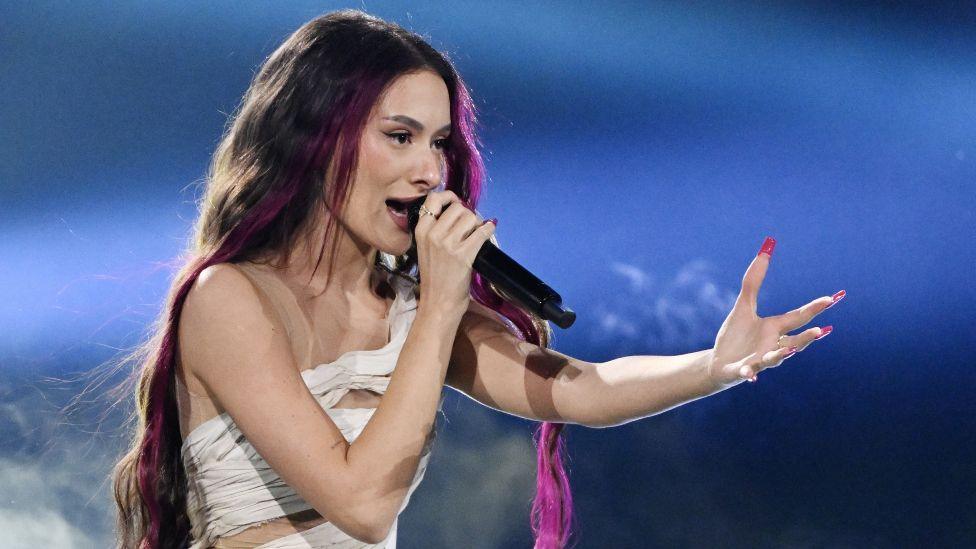
Eden Golan rehearsed her Eurovision song on Wednesday night
- Published
Israel's Eurovision contestant says "nothing will deter" her after getting booed during a dress rehearsal on Wednesday.
Eden Golan was performing her song Hurricane ahead of Thursday's semi-final in Malmo, Sweden.
In a statement, she said she was "proud to represent my country".
There have been several campaigns to block Israel from taking part in this year's contest following the outbreak of war in the Middle East, and thousands of people joined pro-Palestinian protests in the city on Thursday.
But the European Broadcasting Union (EBU), which hosts the event, has ruled Israel is allowed to compete.
After Wednesday's dress rehearsal, several videos surfaced on social media from audience members who had recorded Golan being booed by some members of the crowd.
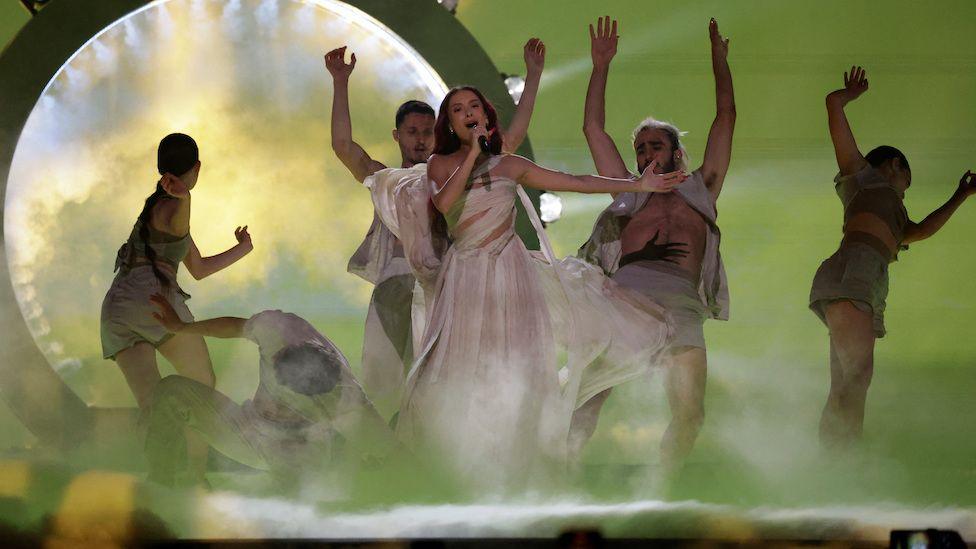
Golan had to change her song Hurricane after the original track October Rain was deemed to be a reference to the October 7 attacks
Israel is currently engaged in a military campaign in Gaza, which they launched as a response to Hamas' cross-border attack on southern Israel on 7 October.
About 1,200 people were killed and 252 others were taken hostage.
More than 34,840 people have been killed in Gaza since then, according to the territory's Hamas-run health ministry.
Who is competing in the Eurovision finals?
- Published10 May 2024
Eurovision 2024: Your guide to all 37 songs
- Published5 May 2024
Ireland's goth gremlin through to Eurovision final
- Published8 May 2024
Israel is free to compete in Eurovision as it is a member of the EBU.
Speaking on Sunday, the deputy director general of the EBU, Jean Philip De Tender, said if you "exclude Kan (Israeli public broadcaster) outside of these competition rules, that would have been a political decision, as such, which we cannot take", because it considers itself as an apolitical organisation.
He added: "We do understand the concerns and the deeply held views that many people have around the war in the Middle East and I think nobody can remain untouched by the profound suffering of everybody involved in that war."
Golan was requested to change her original track, entitled October Rain, after it caused controversy.
The song was thought to allude to Hamas kidnapping and killing Israelis and was then changed to Hurricane, which was approved by the EBU.
Golan's team say the 20-year-old has been confined to her hotel room after a series of threats against the Israeli delegation.
The Israeli Broadcasting Corporation, which organises the country's Eurovision entry, says it has complained to the EBU about the booing and asked it to prevent a repeat of the incident.
Eurovision organisers liaised with Swedish police to bring in reinforcements from Denmark and Norway, as they were expecting protests in the city ahead of Israel’s semi-final performance.
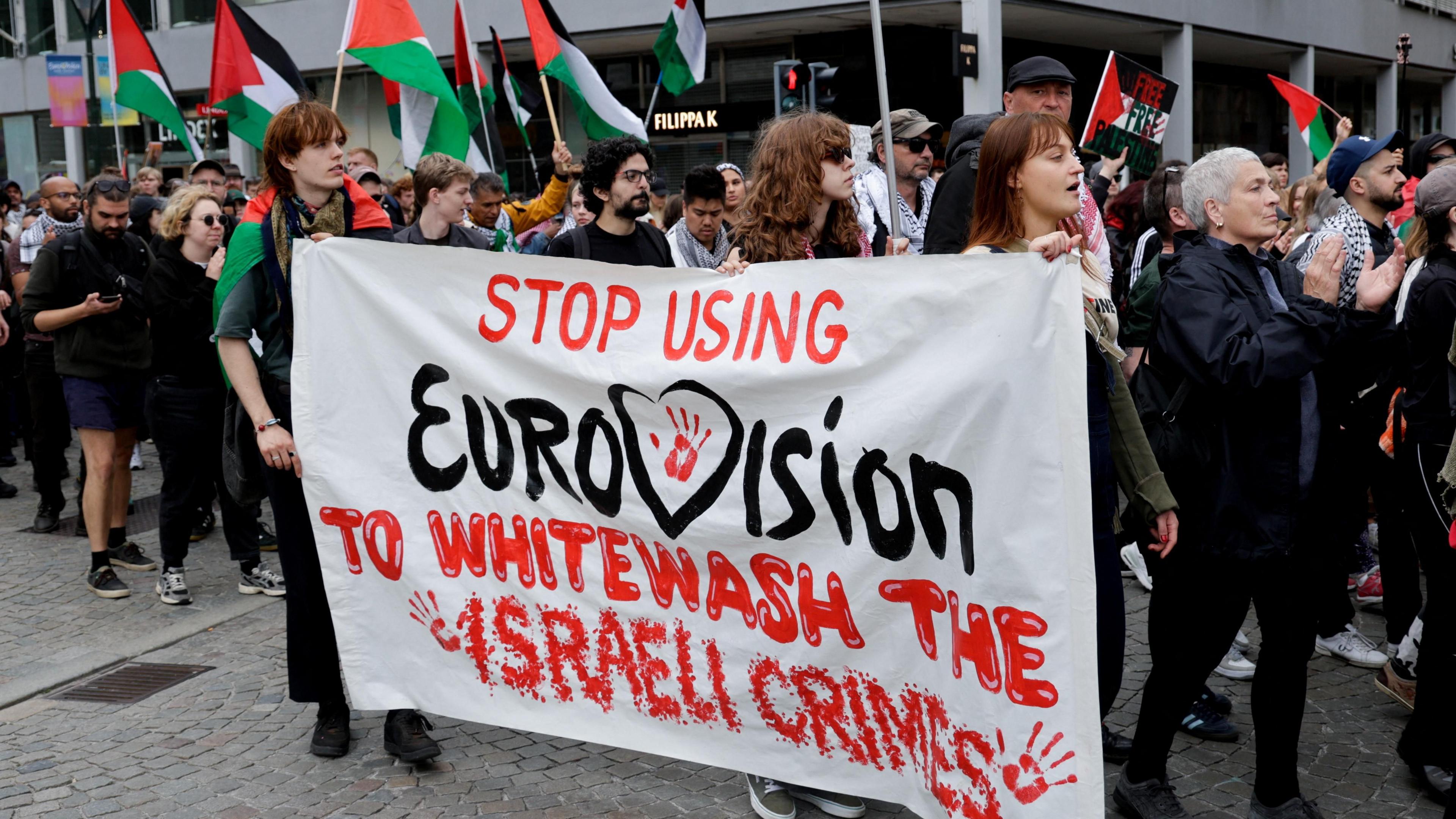
Pro-Palestinian demonstrators in Malmo on Thursday
A heavy police presence has now arrived in the city, as demonstrators gathered with Palestinian and LGBTQ+ flags on Thursday afternoon.
Whilst performances from musicians were taking place, smoke canisters in the colours of the Palestinian flag were set off in the city’s central square.
Protestors have also been carrying signs displaying images of Gazan civilians who have been injured in the conflict.
Eurovision's 2023 winner Loreen told the BBC she understood why people were protesting.
"All of us are affected by what’s going on [but] we don’t know what to do, because it’s such a complex situation," the Swedish singer said.
"Some react with aggression, some cry, some shut down. We are different in that way, so I understand where it [the protesting] comes from.”
But Loreen argued that booing Golan was "not fair" and "unconstructive".
Elsewhere, organisers apologised on Tuesday after a semi-final performer displayed a pro-Palestinian symbol.
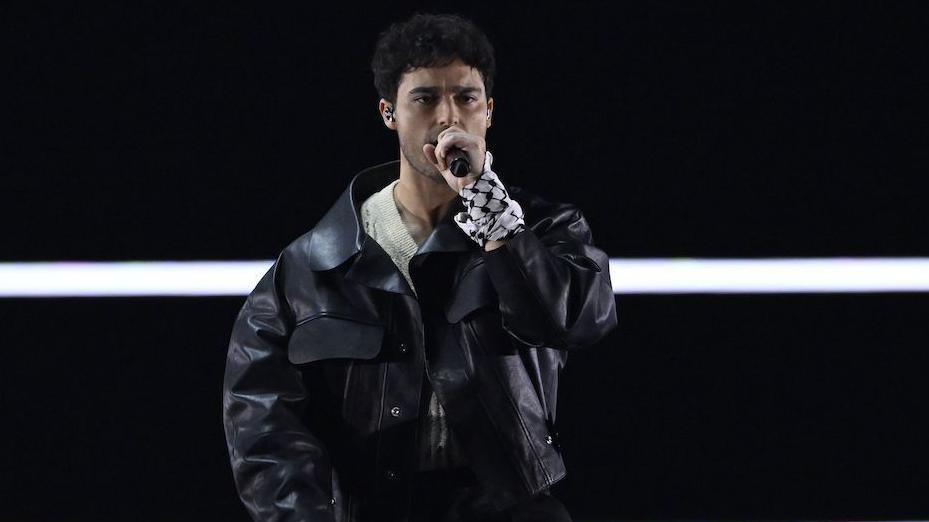
Eric Saade broke Eurovision rules on political statements
Former Swedish contestant Eric Saade, whose father is a Palestinian from Lebanon, wore a keffiyeh - a type of scarf commonly worn by Palestinians - on his arm.
A spokeswoman for the European Broadcasting Union (EBU) said: "The Eurovision Song Contest is a live TV show.
"All performers are made aware of the rules of the contest, and we regret that Eric Saade chose to compromise the non-political nature of the event."
Saade later said on his Instagram story, external the scarf was "just my way of showing a part of my origin... I got that keffiyeh from my dad when I was a little boy, to never forget where the family comes from".
Fans were also warned not to bring Palestinian flags, symbols or bags into the audience at the Malmö Arena.
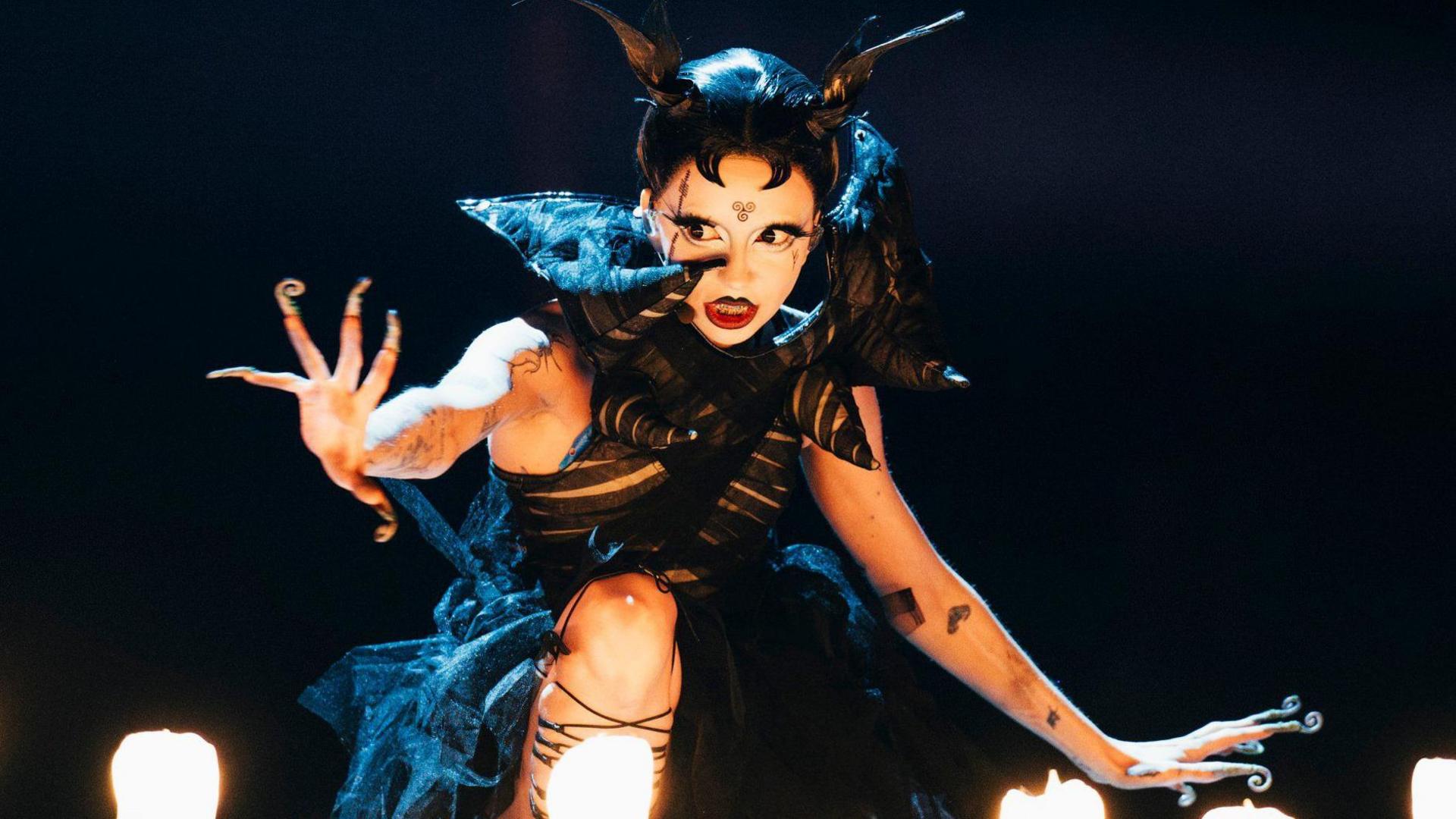
Ireland's entrant, Bambie Thug, had to remove political gestures from their costume
Israel's participation has been one of the main talking points at this year's Eurovision.
Ireland's contestant Bambie Thug told reporters they were "ordered" to remove political gestures from an outfit ahead of the semi-final performance.
Their costume had originally included an ancient Celtic writing known as Ogham - which they said had spelt "ceasefire" and "freedom for Palestine".
The UK's entrant, Olly Alexander, has previously called for an "immediate and lasting ceasefire" in Gaza, but refused calls to boycott the event.
In December he signed a statement accusing Israel of genocide in the war – an accusation which Israel has vehemently rejected.